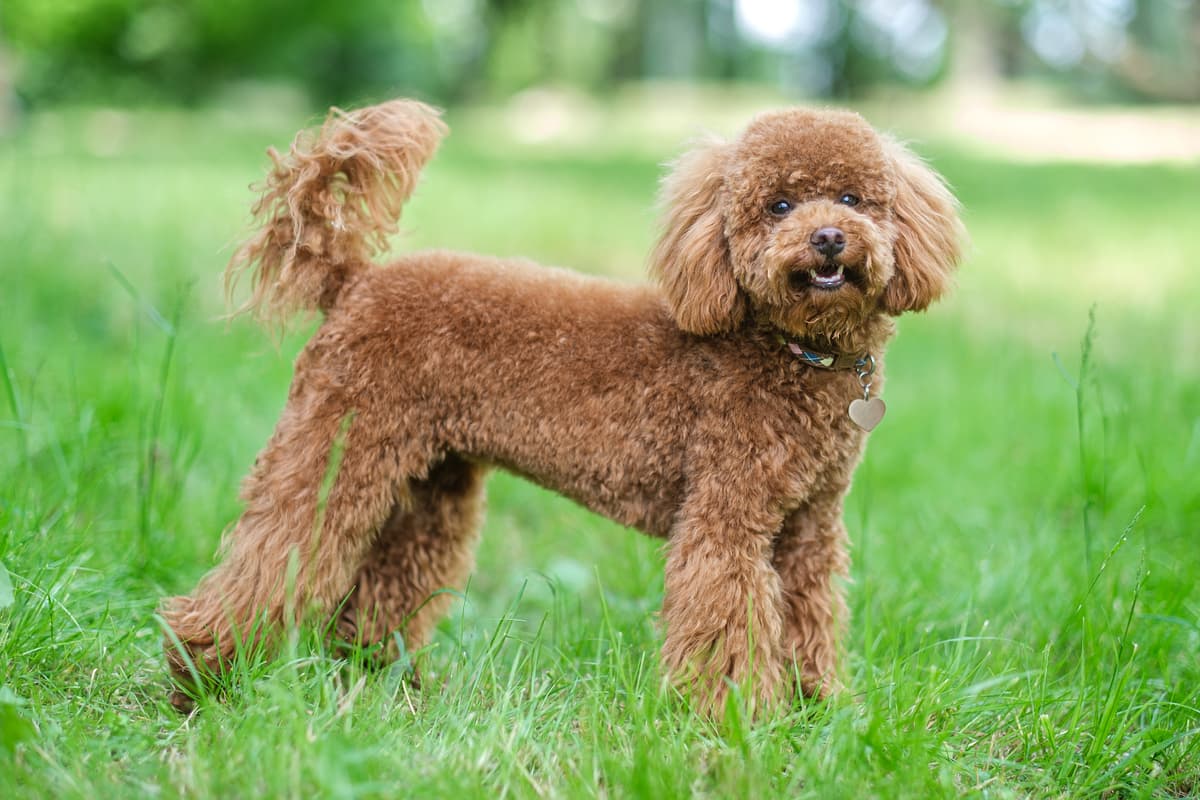Parson Russell Terrier vs Poodle
Discover the differences between Parson Russell Terrier and Poodle to make the best choice for your situation.
Try different breeds

Parson Russell Terrier
Energetic, bold, and intelligent, this terrier thrives on adventure and companionship. Agile and lively, it brings spirited playfulness and loyalty to any household.

Poodle
Elegant, intelligent, and highly trainable, this breed stands out for its lively spirit and loyal companionship. Their hypoallergenic coat and playful personality make them ideal family pets.
Quick comparison
Small
6–8 kg
Harsh, straight
13–15 years
5–7 kg
High energy
Medium
20–32 kg
Curly, dense
12–15 years
18–27 kg
High energy
Personality & behavior
Compare the personality traits and behavioral characteristics of both breeds.
Parson Russell Terrier
Outgoing and sociable with people and dogs
Quick learner, responds well to training
Highly energetic, requires regular vigorous exercise
Loves games and interactive activities daily
Adjusts moderately to new environments and routines
Poodle
Warm and sociable with family and guests
Highly intelligent and quick to learn commands
Needs regular activity and enjoys exercise
Loves games and interactive playtime
Easily adjusts to new environments and routines
Care needs
Exercise, grooming, and daily care requirements
Parson Russell Terrier
Patellar luxation, lens luxation
Poodle
Hip dysplasia, Addison’s disease
Suitability
How well each breed fits different living situations and families
Parson Russell Terrier
Not ideal
Needs experienced handling and consistent training to manage energy and independence
Challenging fit
High activity level and barking can be disruptive in small spaces
Perfect fit
Thrives with regular activity and enjoys participating in energetic routines
Good with supervision
Playful and affectionate but may be too boisterous for very young children
Needs careful introduction
Strong prey drive can create issues with smaller pets or same-sex dogs
Struggles with solitude
Becomes bored and destructive if left alone for extended periods
Poodle
Great choice
Intelligent and eager to please, Poodles are easy for beginners to train and manage.
Highly suitable
Poodles adapt well to apartment life if given daily exercise and mental stimulation.
Perfect fit
Their energy and love for activity make them great companions for active households.
Very friendly
Poodles are gentle and patient with children when socialized from a young age.
Gets along well
Poodles usually coexist peacefully with other pets, especially if socialized early.
Prone to anxiety
Poodles can develop separation anxiety if left alone for long periods regularly.
Breed strengths
What each breed excels at and their best qualities
Parson Russell Terrier
- Energetic and enthusiastic playmate
- Strong prey drive for vermin control
- Highly intelligent and quick learner
- Agile and excels in canine sports
- Loyal and forms strong family bonds
Poodle
- Highly intelligent and easy to train
- Hypoallergenic coat reduces shedding
- Strong bond with family members
- Adaptable to various living environments
- Excellent performance in canine sports
Challenges & considerations
Potential challenges and considerations for each breed
Parson Russell Terrier
- Prone to digging and escaping yards
- Needs extensive daily physical exercise
- Can be stubborn during training sessions
- May chase small pets or wildlife
- Tends to bark frequently when alert
Poodle
- Requires regular professional grooming
- Prone to separation anxiety if left alone
- Needs daily mental and physical stimulation
- Can be reserved with unfamiliar people
- Susceptible to certain genetic health issues
Ready to choose your perfect breed?
Learn more about each breed or compare other breeds to find the perfect match for your lifestyle.
Discover more helpful tools
Make use of our other free tools to get the most out of your pet experience
